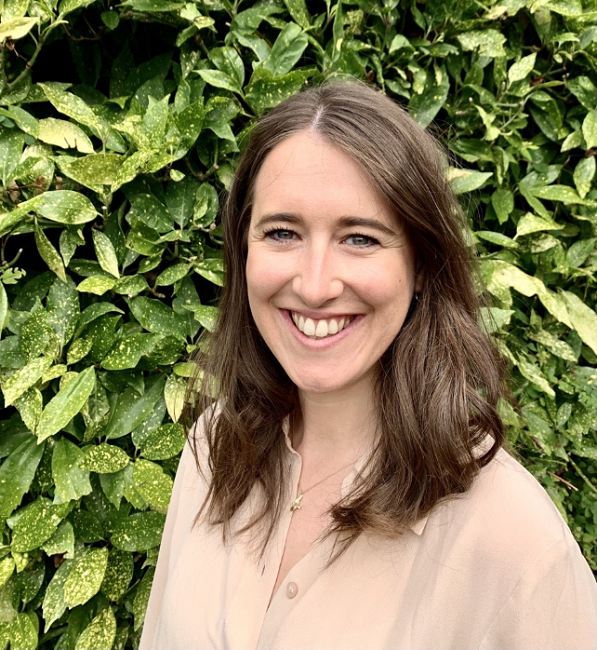A new study by ieso Digital Health in collaboration with the NHS and NIHR BioResource reveals that its AI-driven digital programme delivered results comparable to traditional human-led therapy for generalized anxiety.

Image Credit: ieso Digital Health
An estimated 1.2 million people in the UK are on waiting lists for NHS mental health services. Requiring up to eight times fewer therapist hours per patient, the ieso Digital Programme aims to provide timely access to psychological support freeing up therapist time and expanding their reach. Combining AI technology with human support to provide mental healthcare offers a scalable solution for the 301 million people worldwide with anxiety disorders.
Developed by expert clinicians and using the latest advances in AI, the ieso Digital Programme offers a six-module course facilitated by a conversational agent. It provides real-time, tailored interactions to teach users skills to manage their anxiety based on Cognitive Behavioral Therapy (CBT) principles – a gold-standard treatment for common mental health conditions. The programme combines an app for AI-delivered content with a human support service, building on ieso’s more than ten years’ experience delivering one-to-one typed therapy through the NHS.
In ieso’s landmark study of 300 volunteers with mild to severe anxiety, 82% of participants who used the programme for up to nine weeks showed a clinically meaningful decrease in anxiety symptoms, which can include worry, sleeplessness and fatigue. Even those with severe anxiety benefited from marked improvements, and over half experienced a reduction in symptoms within two weeks, on average. The programme, benchmarked against carefully matched NHS patient data (n=767), proved as effective as human-led therapy. Notable improvements in day-to-day functioning and sustained benefits one month after completion underscore the programme’s potential to significantly alleviate the mental health burden on individuals, healthcare systems, and the economy.
Participants interacted with the programme at their convenience, while the human support service kept them motivated and monitored symptom progression. 94% of participants valued having a therapist available if needed, yet only 15% of participants used this support.
Study participant Victoria, 34, said: “It wasn't just a faceless online course. It’s nice to know that actually there are humans behind it, checking in with you, and if you do have any issues or any feedback, there was somebody there…[The programme] was like somebody was giving me a leg up. It was somebody sort of picking me off the floor and saying, “you've got this, you can do this”.”
ieso is unique in its ability to develop safe and effective AI-driven programmes given their established track record of delivering high-quality typed therapy to NHS patients, and combining their in-house clinical, scientific and AI expertise to understand ‘what works’ in therapy. They do this by analyzing a world-leading outcomes-linked therapy dataset, comprising over 750,000 hours of de-identified typed therapy delivered to more than 135,000 patients. This dataset was also used to robustly evidence the safety of the content produced by the AI-driven conversational agent in ieso’s digital programme.
Paul acts as a Lived Experience Partner for ieso, contributing to shaping the research by sharing his user-centered knowledge of mental ill-health and recovery. Paul explains: “We need to treat people as individuals as mental health affects people in different ways. Digital technology offers new choices for people who may struggle with traditional methods of therapy, and importantly, the ieso programme still includes human support, so people are not left alone. This means that people can get help quicker, and they can now get a more personalized journey that means they get what they need when they need it most.”
Dr Clare Palmer, PhD, Scientific Director of the study said: “The results far exceeded our expectations for what could be achieved through combining this technology with human support. We’ve seen one of the largest effects on anxiety reduction in any study, with benefits that persist for at least a month, and we were even able to help people with severe levels of anxiety. The study’s exciting results represent a major step forward on the journey to scalable mental health support to meet the growing global demand.”
Combining digital interventions with human-delivered care leverages the strengths of both approaches. In this model, digital tools deliver evidence-based mental health content at scale, with human support to assess the clinical presentation, provide accountability to increase engagement, and intervene when clinical need escalates. A blended model with both digital and human-delivered care can address the need for scalable mental health support while ensuring that treatment is safe, engaging, and effective.”
Dr. Sara Johansen, MD, Director of the Digital Mental Health Clinic, Stanford University School of Medicine8
Emily Marshall, Clinical Director of the study added: "As a therapist working to make a difference for over fifteen years, I understand the impact of safe, effective, and engaging mental health support for people experiencing some of their most vulnerable moments. By using expert therapist knowledge and the latest AI advances, ieso’s digital programme could transform mental health by making high-quality, evidence-based care available to everyone who needs it - and crucially when they want it and need it most. Increasing patient choice with evidenced options for those who wish to access their mental health support in a different way can free up therapist time, and enable them to reach more patients."
Volunteers for the study were recruited from the GLAD study cohort of participants within the National Institute of Health Research (NIHR) BioResource, online advertisements and ieso’s typed-therapy service.
In the US, variants of the ieso digital programme are being piloted with payers and health systems. The program will be rolled out with selected UK partners in late 2024.